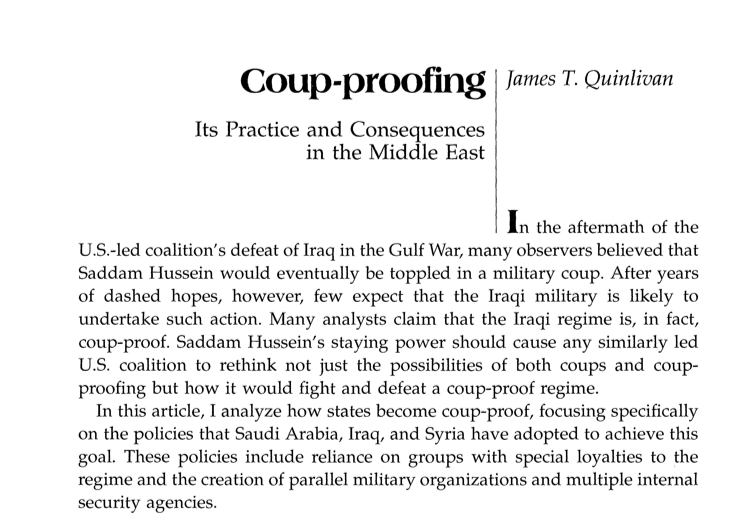The recent Israel-UAE agreement has prompted some people in Pakistan to suggest that Islamabad too should normalize its ties with the Jewish state. As if the decision can be taken so easily. A short THREAD: 1/n
This is tangentially related to one of my current projects, so I am offering my opinion. Conclusion: The difference between the UAE and Pakistan is in their respective abilities to keep the Islamists and clergy in check. 2/n
As David B. Roberts explains here, the UAE has always followed a secular foreign policy, which stems from a profound distrust of the Islamists. https://www.foreignaffairs.com/articles/united-arab-emirates/2016-03-18/mosque-and-state 3/n
Roberts calls it "a Jeffersonian separation between institutionalized religion and politics, both domestically and abroad." Almost everyone assumes that Saudi Arabia will follow next. It might. The ability of Saudi Arabia to do it, however, is somewhere b/w UAE and Pakistan. 4/n
As the custodian of Islam's holiest sites and the fountain hub of Wahabism's global spread, it is difficult to suggest that Saudi Arabia has been able to separate religion from politics. However, what Saudi Arabia has been good at is to robustly coup-proof its regime. 5/n
Robust coup-proofing reduces the probability of clergy or the Islamists to be able to mount a challenge to the regime. The reason is that the clergy is less likely to find an institution which will help mount the challenge without suffering punishment. 6/n
Saudi Arabia has done this coup-proofing through various ways including creation of parallel militaries and multiple security agencies that keep an eye on each other. James T. Quinlivan explains it in his famous 1999 paper. 7/n
Another factor that works in Saudi Arabia's favour is that the crown prince MBS has reportedly been trying to reduce the role of religion in Saudi society and is attempting to generate a Saudi nationalism that doesn't depend on religion. 8/n
A Saudi-Israel normalization will be a good test of MBS' effectiveness in achieving that. Pakistan, on the other hand, has almost no control over clergy. Its military has often entered into convenient coalitions with the clergy in order to isolate the politicians. 9/n
One of the recent significant examples was the Pakistani military using a protest launched by Tahir-ul-Qadri, an Islamic preacher, to weaken the Nawaz Sharif government in 2014. The politicians in Pakistan will always be afraid to initiate a move which can... 10/n
... lead to another such clergy-military alliance. The Pakistani military is unlikely to initiate any such moves either. The army chief, while stronger than politicians, is on a second term and is resented by other senior officers in the Pakistani military. 11/n
To sum up: There are real costs to giving so much play to religious narratives in the domestic and international policies of a country. The clergy and hardliners can become a force, and effectively exercise a veto over important foreign policy decisions. END 12/12

 Read on Twitter
Read on Twitter


